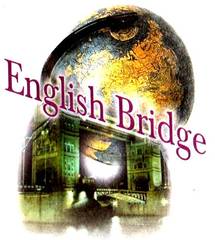Dear students! If you want to improve your language, speak English every day! Here you can find a lot of interesting information: http://www.bbc.co.uk/worldservice/learningenglish/grammar/learnit/


 You can practise your ear watching videos from Oxford, for example (come here you can find lots of useful & interesting information): International Express Intermediate, Unit 4 - Mercedes-Benz Museum
You can practise your ear watching videos from Oxford, for example (come here you can find lots of useful & interesting information): International Express Intermediate, Unit 4 - Mercedes-Benz Museum


English students at ILAC Vancouver explain the importance of studying English
What is ILAC? - ILAC is the largest language schools in Canada and one of the top language schools in the world. We take pride in our service excellence and offer a variety of programs and courses to meet your English language goals.ILAC is the largest language schools in Canada and one of the top language schools in the world. We take pride in our service excellence and offer a variety of programs and courses to meet your English language goals.
Practise listening skills & train your ears!))) 

Secrets To Learning English Quickly - you can find various kinds of learning materials to improve your English, which is the most suitable for you, here on this site! just look for it on our pages & enjoy your learning English! Good Luck!
Cерия "Живой язык"
Уроки английского языка
Американизмы: угроза самобытности английского языка?
Сленг британских моряков: теперь не только на флоте
Погодные клише в английском языке
Listen to how to ask for permission and be polite:
 JOKES
JOKES 
 & TRUTHS
& TRUTHS 



value ['væljuː] - ценность; важность
petrol ['petr(ə)l] - бензин
costly ['kɔstlɪ] - дорогой, дорогостоящий
Now or Never (2011) - A Short Film About Family Relationships
3 Ways to Deal With Impossible Family Relationships (no gun needed)
Э. Асадов Как мало тех, с кем хочется проснуться.
НЕ ТРАТЬТЕ ЖИЗНЬ НА ТЕХ, КТО ВАС НЕ ЦЕНИТ...
Омар_Хайям. Восточная мудрость
 |
 |
 |
Generation Gap - Must Watch Video!!! (but you must read it) Think about it now not to be sorry then!
GRAMMAR SECTION: it turns out that (clause)
Phrasal verb TURN + exercises!!!
English definition of “turn out”
9 TURN Phrasal Verbs: turn on, turn off, turn over, turn around, turn out…
PHRASAL VERBS - ФРАЗОВІ ДІЄСЛОВА


BBC Learning English: You learn new words and phrases in English all the time, but how do you remember them later? Rob and Sue may be able to help you: Tips for Memorising Vocabulary
Are you good at writing stories in English? You might still be learning the language but don't let that curb your imagination. Rob and Sue give you tips to write well in English.
1. Planning (beginning/middle/end)
2. Sentences (don't use too many adjectives and adverbs)
3. Verbs (active voice is better than passive voice)
4. Collocations (use words which go naturally together - go for the dictionary)
5. Read it aloud (check if flows well) : Tips for writing well in English
BBC Learning English: Vocabulary Challenge: Cinema
How many phrasal verbs can you think of using the verb "run"?
Rob and Sue are use some of them in this clip: Phrasal Verbs
Let`s listen to the world`s classic music: "PINK FLOYD" "Hey, you!" (Think over the content of the song text)))
Hey you
Hey you, out there in the cold
Getting lonely, getting old
Can you feel me?
Hey you, standing in the aisles
With itchy feet and fading smiles
Can you feel me?
Hey you, don't help them to bury the light
Don't give in without a fight.
Hey you, out there on your own
Sitting naked by the phone
Would you touch me?
Hey you, with you ear against the wall
Waiting for someone to call out
Would you touch me?
Hey you, would you help me to carry
the stone?
Open your heart, I'm coming home.
But it was only fantasy.
The wall was too high,
As you can see.
No matter how he tried,
He could not break free.
And the worms ate into his brain.
Hey you, out there in the road
Always doing what you're told,
Can you help me?
Hey you, out there beyond the wall,
Breaking bottles in the hall,
Can you help me?
Hey you, don't tell me there's no hope at all
Together we stand, divided we fall.
Урок англійської мови: Message in a bottle
Текст:
Nobody likes junk mail… But this pile of rubbish might contain just what Nicola White is looking for.
She hunts for messages in bottles on the banks of the River Thames in England.
Nicola’s found over 30 in three years, including a declaration of love and an appeal for a job.
It seems, in this case, bottling up your emotions is a good way of sharing them.
Корисна лексика:
- junk mail - реклама і інший непотріб, який вкидають у поштові скриньки
- hunts - полює, шукає
- banks - береги
- declaration of love - освідчення в коханні
- bottling up - "запляшковувати", приховувати
Інші уроки англійської мови на сторінці ВBC Learning English.
Activity - 1
1 Dear Sir or Hey, folks?
Skills practice - reading and vocabulary
Do you know how to begin an e-mail? What do you normally write at the beginning of a letter? Read this article about ways of beginning e-mails and letters. While you read look at the words in bold and try to guess their meanings. Look at the context (the words before and after the words in bold) to help you guess.
When you have finished reading, check your guesses by playing the definition game at the bottom of the page.
Read the text
Article: Should e-mails open with Dear, Hi or Hey?
It's time people stopped using the word 'Dear…' to start work e-mails. That's according to Giselle Barry, a woman who works in the United States Congress. She surprised lots of people by starting an email to a group of journalists with the words ', folks.'
Ms Barry thinks 'Dear' is too intimate and makes it sound like you have a personal relationship with the person you are writing to.
It seems she's not alone. E-mail and the internet have changed the rules about how to write. In the past, there was no choice, but now you can see e-mails from people starting with 'hello', 'hi' and even 'hey'.
The American newspaper, the Wall Street Journal, wrote 'Across the internet, the use of 'dear' is going…'
But not everyone is as relaxed about this as Ms Barry. Etiquette expert Jean Broke-Smith says, 'I'm fed up with people writing 'Hi Jean' when they've never met me.'
'If you're sending a business e-mail you should begin 'Dear...' - like a letter. You are presenting yourself. Politeness and etiquette are essential.
How about you? Do you think that the internet has made the language you use less formal? Is that a good or a bad thing? How important is it to be polite?
Note: this article is based on an original story written by James Morgan from BBC News.
So, did you understand the words in greenbold? Try the definition game to see:
The definition game 6 Questions
Look at the words from the article and choose the correct definitions. Begin activity
Continue Next
Well done! Understanding vocabulary in context is a very useful skill.
Now try the next activity to see how well you understood the article.
- Next activity
- Getting to know each other
- Welcome!
- 'The Race' and a quiz
- Have you tried?
- 6 Minute English
- Be a journalist
-


